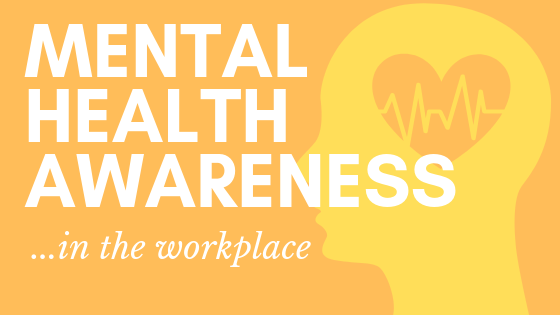Search for that
new job role...
Managing Mental Health in the Workplace

What is mental health and why does it matter?
Poor mental health is one of the biggest issues in the workplace today, causing over 70 million working days to be lost each year. The most commonly experienced symptoms include stress and anxiety through to more complex mental health conditions such as depression, obsessive-compulsive disorder and bipolar disorder.
As well as having a huge impact on individual employees, it also has severe repercussions for employers including increased staff turnover, absence, lost productivity and decreased motivation.
How do we encourage good mental health in the workplace?
As employers we need to encourage safeguarding staff, addressing problems before they become severe and supporting staff when issues do emerge. As an employer, it's about spotting the signs that something might be wrong and putting strategies in place to support good mental health.
Have you spotted the signs?
There are many reasons why mental health has become such a huge issue in the workplace today, but one factor is that many cases go unrecognised until they become severe. Whilst most employers are clued up on spotting the signs of physical illness, mental health problems can be more difficult to identify.
Here are some common signs that someone may be struggling:
Emotional:
Employees who are struggling with their mental health may seem irritable, sensitive to criticism, demonstrate uncharacteristic loss of confidence or seem to lose their sense of humour.
Business:
At a business level, look out for increased absence or staff turnover. Have you noticed employees working longer hours or a general drop in motivation or productivity levels?
Behavioural:
This could include things like arrive late, not taking lunch breaks, taking unofficial time off, not joining in office banter or not hitting deadlines, becoming more introvert or extroverted, generally acting out of character.
Cognitive:
An employee may make more mistakes than usual, have problems making decisions, or not be able to concentrate. Look out for any sudden unexplained drop in performance at work.
What can you do as an employer?
Prevention:
It is important to safeguard the mental health of your employees by creating an open and caring culture that makes staff feel supported and looked after. Here are some practical ways you can do this:
Culture:
Create a culture of openness and awareness by encouraging people to talk about mental health.
Communication:
Use staff newsletters, posters in communal areas and other internal communications to raise awareness of mental health.
Conduct regular staff surveys to take a temperature check on wellbeing and feedback results and progress to staff.
Working Practices:
Review job descriptions to ensure that tasks are set out clearly and workload is realistic.
Think about how success is measured and people are rewarded.
Encourage staff to take regular breaks away from their desks and get out of the office to reduce stress.
Managers:
Train up your management team! If employees know their boss is clued up in mental health matters, they may feel more comfortable in coming forward to discuss any problems they may have at work or even at home.
Make sure line managers spend time getting to know their team, this makes it easier to spot when they're struggling or have a change in their behaviour.
Remember that you should always talk about mental health openly. As an employer and a colleague, we all have a responsibility to look after one another.
#WorldMentalHealthDay



